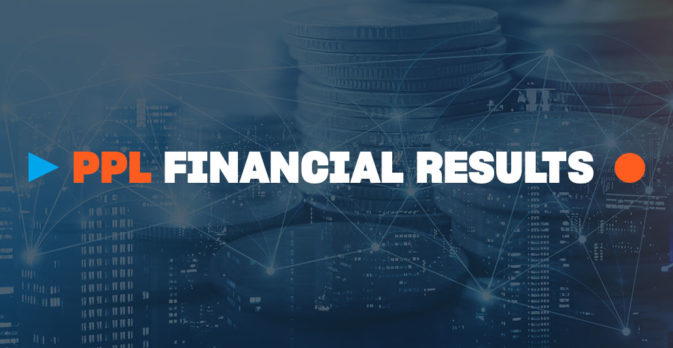PPL reports a 12% increase in revenues in 2021 to £252.8 million
UK music licensing company PPL has delivered a £27.1 million (12%) increase in revenues in 2021 to £252.8 million. All three revenue streams – International, Broadcast and online, and Public performance and dubbing - grew year-on-year, with International and Broadcast and online licensing revenues delivering record annual amounts.

These results mark the company’s second highest annual revenue total, after 2019’s £271.8 million.
International
PPL’s international revenues were £94.0 million last year. This is PPL’s highest annual revenue amount since international collections started in 2006, up by £8.1 million (9.4%) on the £85.9 million collected in 2020. PPL is the world’s leading international neighbouring rights company, collecting more money than any other company or administrator. It has 105 agreements with collective management organisations (CMOs) in Africa, Asia, Europe and North and South America and in 2021 established new deals with CMOs in India and Indonesia. In 2021 a number of CMOs also sped up or brought forward payments to support performers and recording rightsholders impacted by COVID-19, further contributing to 2021’s international revenue amount.
Broadcast and online
Broadcast and online licensing revenue increased by £4.4 million (5.3%) last year, rising from £82.3 million in 2020 to a record annual total of £86.7 million in 2021. This reflects the recovery of the commercial radio sector’s advertising revenues in 2021, whose licence fees are calculated as a share of each station’s revenue – indeed, total radio revenues were higher in 2021 than in 2019, before the pandemic. PPL also continued to license new online services and platforms, including multi-territory deals with Mixcloud for its Mixcloud Live streaming service and with Sonos for its Sonos Radio service. PPL is leading the way in delivering pan-territorial licensing deals for new webcasting services, working with other CMOs to ensure recordings can be effectively exploited and that recording rightsholders and performers earn from their work. Television income continues to provide a stable income stream thanks to the long-term licences PPL has negotiated with major broadcasters.
Public performance and dubbing
Revenue from the playing of music in public at venues such as pubs, bars, clubs, shops and offices grew by £14.6 million (25.4%) to £72.1 million in 2021, up from £57.5 million in 2020. Licensees were able to trade more freely than in 2020 thanks to the easing of COVID-19 restrictions, but revenues are yet to return to their pre-pandemic level of £99.6 million. PPL PRS Ltd, the joint licensing venture operated by PPL in partnership with PRS for Music, worked with licensees and their trade bodies to support them with their music licensing. In addition to not charging fees for periods when premises were closed, support included temporarily changing payment policies to allow for deferred payments and suspending late payment charges.
2021 distributions
Whilst PPL distributions decreased by £31.5 million (15.2%) to £228.7 million in 2021 due to the pandemic’s impact on 2020 collections, a record number of performers and recording rightsholders were paid – 147,000 received at least one payment in 2021, an increase of 35,000 (31.3%) on 2020. PPL can pay out to so many performers and recording rightsholders because of its technology, as well as its increasing membership. It has one of the most comprehensive repertoire databases of its kind in the world, holding detailed performer and recording rightsholder information on more than 20 million recordings. Over the last 3 years, on average 45,000 new recording details have been received each week. It also works closely with partner organisations across the music industry to develop the technology and operations that underpin the neighbouring rights sector, helping to improve the quality of recording metadata as well as the identification of recording usage. This includes building and then operating IFPI and WIN’s RDx data exchange portal (to support the dissemination of recording data from record companies to neighbouring rights CMOs around the World) and being an important player in SCAPR’s Virtual Recording Database (which is improving the quality, use and sharing of performer line-ups on recordings). Both promote the more accurate and efficient exchange of payments to record companies and performers around the World.
Peter Leathem, Chief Executive Officer of PPL, said:
“2021 was a strong year for PPL. We achieved our second highest annual revenue total and saw our best ever year for both International revenue and Broadcast and online revenue. Being able to deliver this while in the middle of the COVID-19 pandemic, with all of its adverse impact on the economy, is testament to the strength of PPL’s business. PPL now pays more than three times as many performers and recording rightsholders than ten years ago when I became CEO and is collecting nearly double the revenue. We collect more international neighbouring rights royalties than anyone else, and PPL PRS Ltd, our joint public performance licensing venture with PRS for Music, launched in 2018, is streamlining the collection of public performance royalties.
PPL has been able to achieve such successful growth because of the talented and dedicated team I have with me at PPL. Thank you to our members, licensees and industry partners for working so collaboratively with us and we look forward to continuing to develop the neighbouring rights sector for the benefit of performers and recording rightsholders.”



